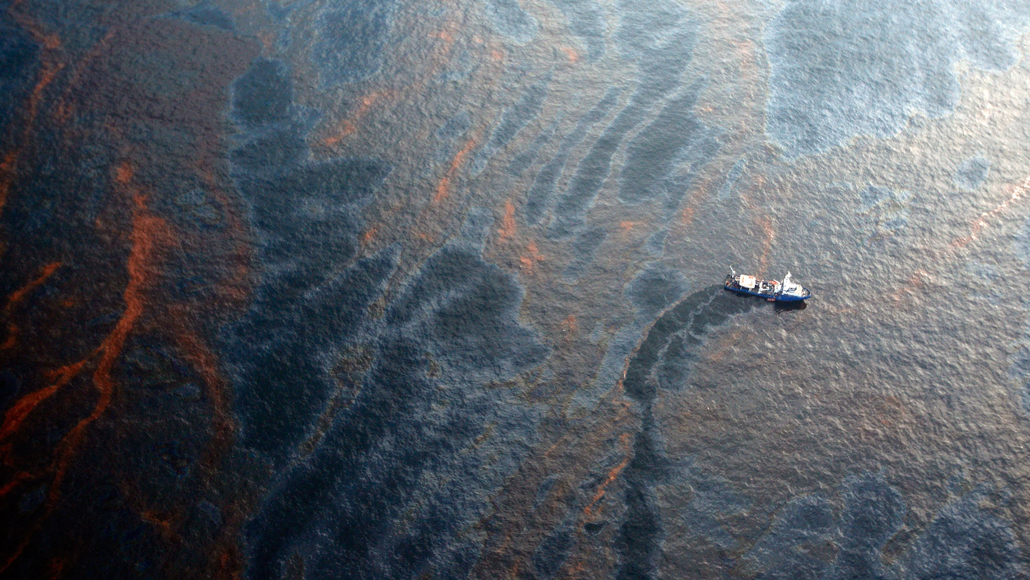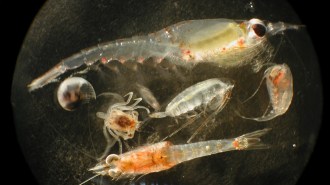
On April 28, 2010, eight days after an explosion on the Deepwater Horizon oil rig in the Gulf of Mexico, this U.S. Coast Guard boat collected spilled oil. Sunlight may have helped dissolve 3 to 17 percent of the surface oil, researchers say.
Chris Graythen/Getty Images




